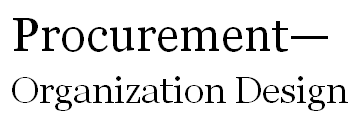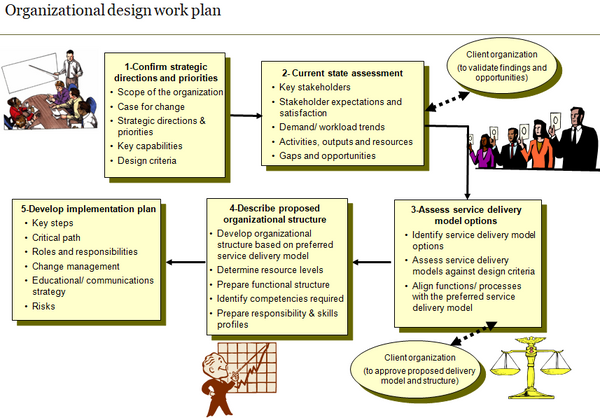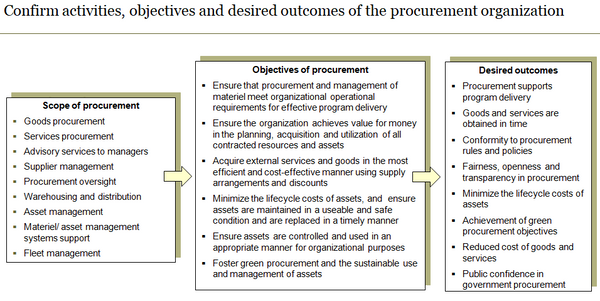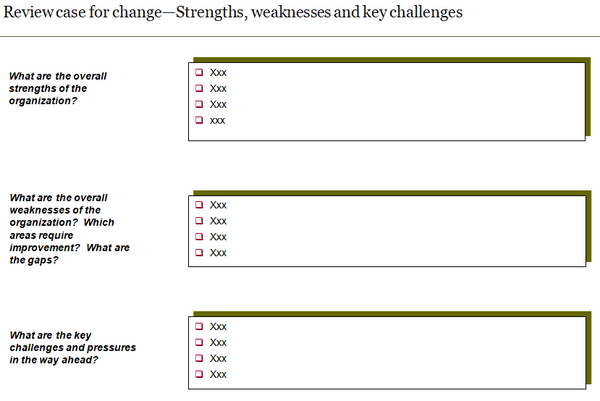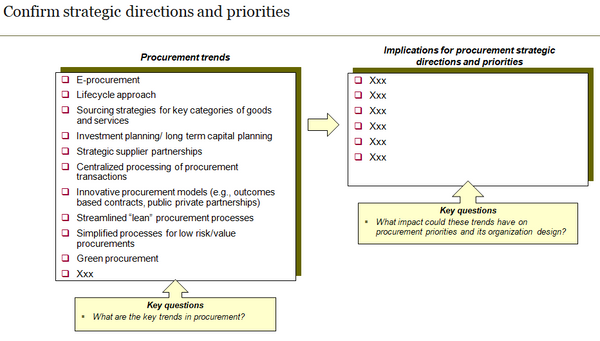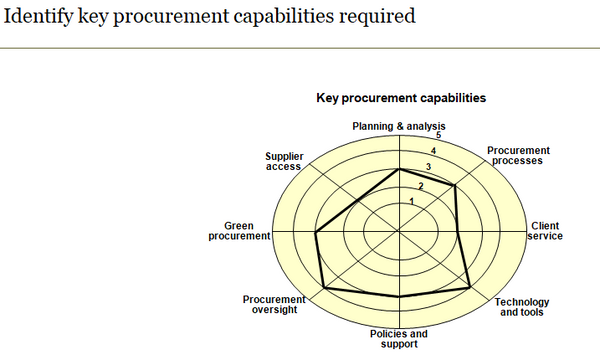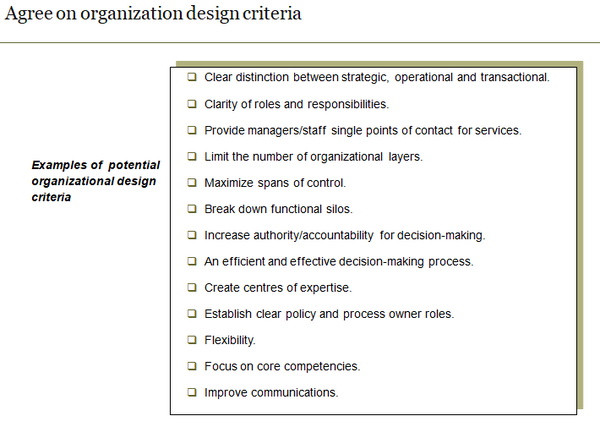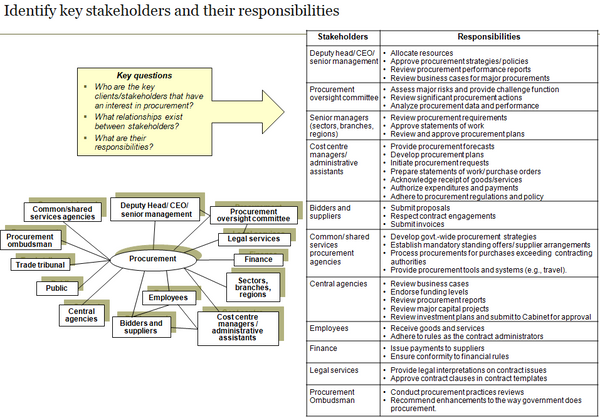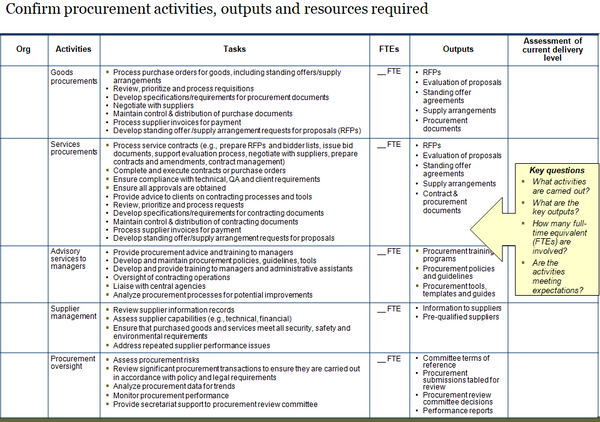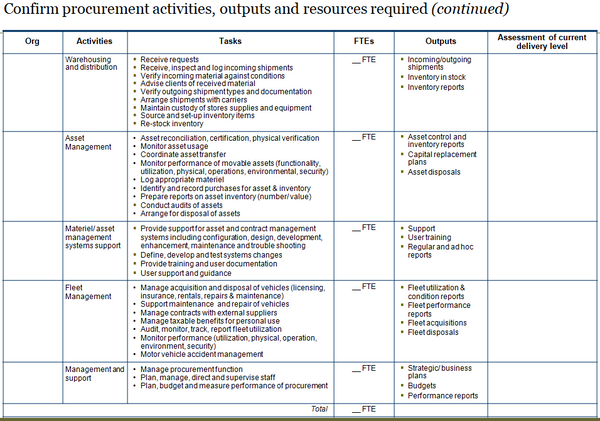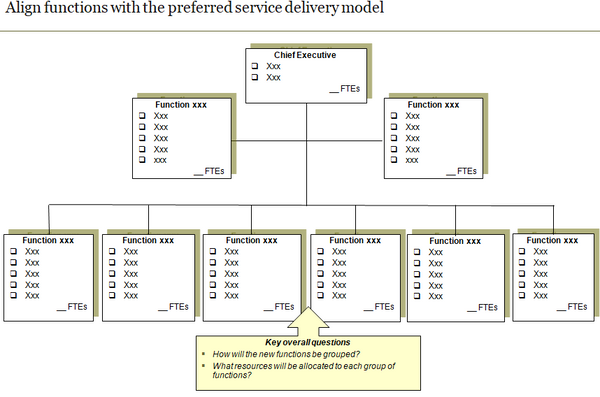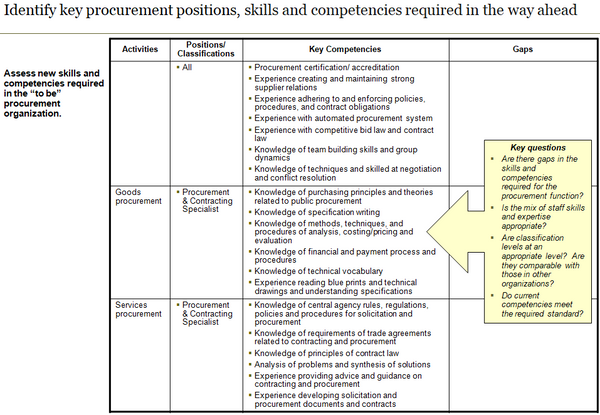Procurement Organization Design Template (15 slides)
What is the ideal organizational structure for procurement? The procurement organization must achieve a range of outcomes such as:
- be responsive to program delivery;
- obtain goods and services on time;
- ensure fairness, openness and transparency;
- ensure conformity to procurement rules and policies;
- minimize the lifecycle costs of assets;
- meet green procurement objectives;
- maintain public confidence in government procurement.
The ideal organization design will depend on the context of each organization and its strategic priorities.
Procurement organization design template
Using content specific to procurement, the procurement organization design template addresses all the key elements of an organization design review (see preview charts):
- The scope of procurement activities, objectives and desired outcomes
- The case for change—strengths, weaknesses and key challenges
- Procurement trends, strategic directions and priorities
- Key procurement capabilities required
- Organizational design criteria
- Stakeholders and their responsibilities for procurement
- Stakeholder expectations of procurement
- Procurement workload trends
- Procurement activities, tasks, outputs and resources required
- Procurement delivery model options
- Alignment of functions with the preferred service delivery model
- Key positions, and skills and competencies required in the way ahead.
You receive an email with a link to download the template (15 slides) in a PowerPoint fully editable format.
Procurement organization design models
Examples of types of organizational structures for the procurement function include:
-
Decentralized delivery model. Each sector/branch/region manages and delivers its own procurement activities. The corporate procurement organization establishes overall strategic directions and procurement policies and standards, and provides functional direction.
-
Mixed model. The corporate procurement organization establishes enterprise-wide strategy and provides procurement support to some sectors/branches/regions; larger sectors/branches/regions deliver their own procurement activities.
-
Centralized distributed model. The corporate procurement organization delivers all procurement activities on behalf of sectors/branches/regions; procurement advisors reporting to corporate procurement are dedicated to branches/ sectors/ regions.
-
Centralized delivery model. The corporate procurement organization delivers all procurement activities on behalf of the whole organization.













